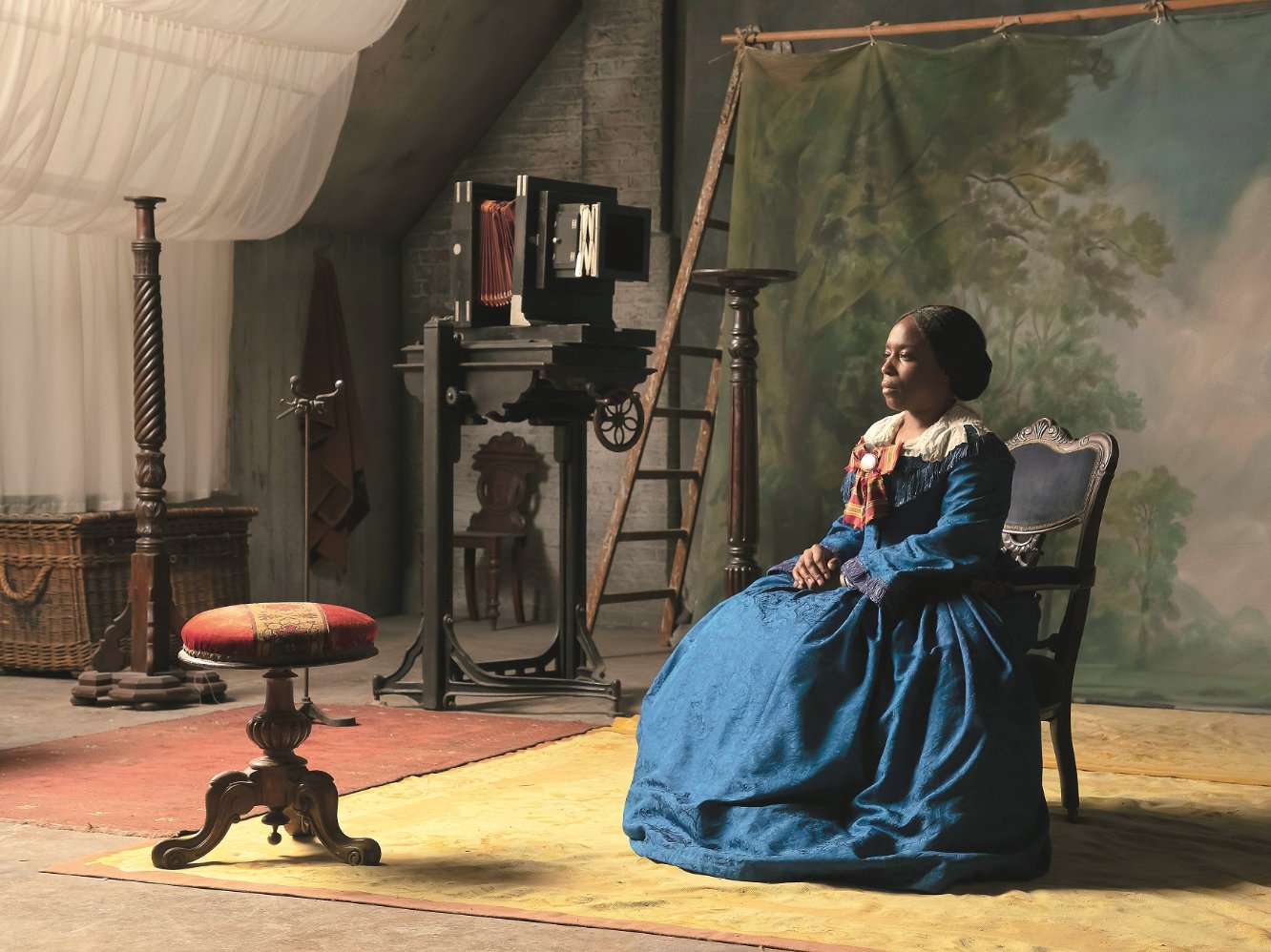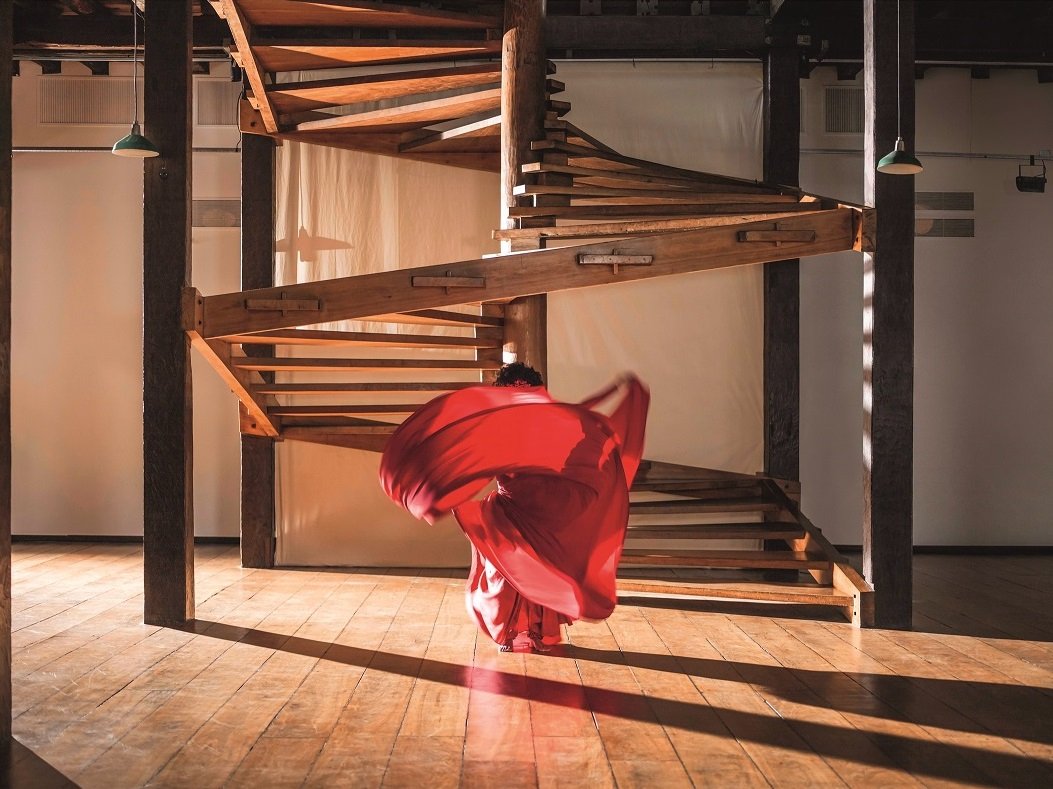Isaac Julien
Pas de Deux with Roses (Looking for Langston Vintage Series) 1989/2016
Ilford classic silver gelatin fine art paper, mounted on aluminium and framed
58.1 x 74.5 cm
Courtesy the artist and Victoria Miro
Isaac Julien is internationally acclaimed for his compelling lyrical films and video art installations. This ambitious solo show charts the development of his pioneering work in film and video over four decades from the 1980s through to the present day, revealing a career that remains as fiercely experimental and politically charged as it was forty years ago.
The exhibition presents a selection of key works from Julien’s ground-breaking early films and immersive three-screen videos made for the gallery setting, to the kaleidoscopic, sculptural multi-screen installations for which he is renowned today. Together, they explore how Julien breaks down barriers between different artistic disciplines by drawing from film, dance, photography, music, theatre, painting and sculpture.
The show opens with Julien’s earliest experiments in moving image, produced in the context of the Sankofa Film and Video Collective. Founded by Julien in the summer of 1983 together with Martina Attille, Maureen Blackwood, Robert Crusz and Nadine Marsh-Edwards, this group of London art students from across the African, Asian and Caribbean diaspora played a vital role in the establishment of Black independent cinema in Britain. Four works from this period have been brought together at Tate Britain, including Julien’s first film, Who Killed Colin Roach? (1983) — conceived as a response to the unrest following the death of a young man at the entrance to a police station, Territories (1984), which focuses on the Black British experience in the early 80s, and This is Not An AIDS Advertisement (1987), an important work of LGBTQIA+ history that continues to resonate powerfully today. The artist’s pivotal film exploring Black, queer desire — Looking for Langston (1989) — also features, bringing together poetry and image to look at the private world of the Black artists and writers who were part of the Harlem Renaissance in the 1920s.
What Freedom Is To Me is on view through August 26th at Tate Britain, Millbank, London




